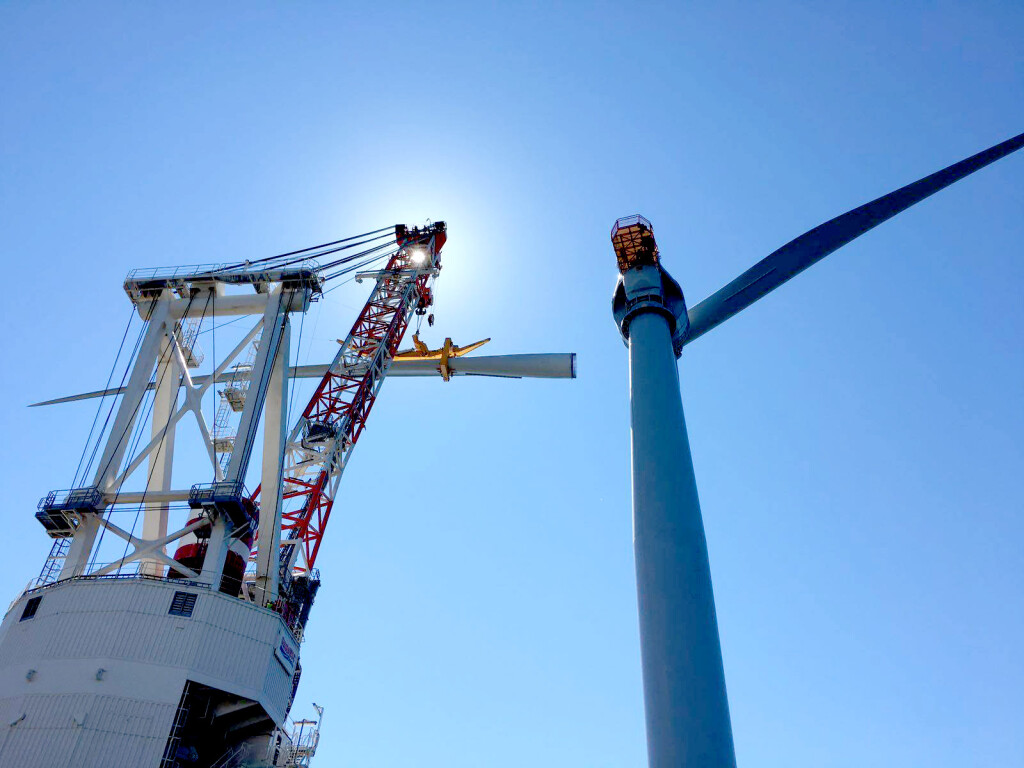In response to the hiring of a foreign-flagged 100' tugboat and foreign mariners to reposition anchors for Vineyard Wind, the Offshore Marine Service Association (OMSA) reaffirms its call to Congressional leaders to bring parity between U.S.-flagged and foreign-flagged vessels operating in U.S. offshore energy markets.
Passing the American Offshore Worker Fairness Act (AOWFA) would ensure that U.S. energy creation means U.S. jobs.
Over the last several years, offshore wind developers have continued to hire foreign vessels and crews over U.S. workers to benefit their own bottom line, all while begging for tax credits from the U.S. government. The enhanced profit the wind developers saved by using foreign crews is costing U.S. jobs and putting national security and sovereignty at risk.
“Offshore wind developers were just handed a multibillion dollar tax credit from U.S. taxpayers and Vineyard Wind turns around and gives those dollars to Dutch vessel owners and foreign mariners. American offshore energy should mean American jobs and opportunity, unfortunately once again we are seeing offshore developers knowingly skirt American law to save a (taxpayer supported) buck at the expense of American jobs,” said Aaron Smith, OMSA president. “Vineyard Wind has been caught in a lie after telling Congress that they would use U.S. vessels and only use foreign vessels in exceedingly rare circumstances. There are approximately 2,000 U.S. tugs with American crews available today, but instead Vineyard Wind hired the Dutch-flagged vessel NORNE for a minor, every day role while American mariners sit ideally by. This is just one example of offshore developers taking advantage of an unfair loophole allowing foreign flagged vessels to hire crews from low-wage, often adversarial nations, undermining American job and energy creation goals.”
The American Offshore Worker Fairness Act (AOWFA), currently working its way through Congress, would put an end to these shameful practices and instead invest in America’s energy future with America’s workforce. When foreign vessels and crews are allowed to knowingly engage in unfair, dangerous practices lacking any accountability to American laws, American mariners and their families lose.
AOFWA would require foreign vessels to utilize either U.S. mariners or citizens of the vessel’s home country while operating in offshore energy activities in U.S. waters. This would change the current practice where foreign vessels utilize crewmembers from low-wage countries at day rates no American would or should accept. This unfair practice gives foreign vessels a competitive advantage over U.S. vessels and takes jobs away from U.S. mariners.
Closing this loophole will greatly assist U.S. mariners and U.S. companies participating in both the offshore oil and gas and offshore wind industries. The legislation further reduces the cost disparity between U.S.-flagged and foreign-flagged vessels by:
- Requiring foreign mariners working in the U.S. offshore energy markets secure a Transportation Worker Identification Credential (TWIC). Current regulations allow such mariners the option to secure a TWIC while U.S. mariners are required to secure and hold a valid TWIC.
- Limiting the number of visas that can be issued for each foreign vessel operating in U.S. waters and taking steps to ensure that these visas are connected to the mariner’s work on that vessel.
- Requiring each foreign vessel in U.S. offshore energy markets to prove their ownership structure annually.
- Requiring the U.S. Coast Guard to annually inspect foreign-flagged vessels operating in U.S. offshore energy markets to ensure compliance with these changes.
AOWFA does not change the nature of existing law, rather it closes a dangerous, unfair loophole that gives preferential treatment to low-wage workers at the expense of American workers.
OMSA is a spokesman and advocate for the U.S. offshore marine transportation service industry. The association represents 120-member companies and their 12,000 U.S. employees based throughout the U.S.
October 27, 2022
Vineyard Wind hires foreign vessel and mariners over U.S. ships and crews
Offshore Marine Service Association (OMSA)





